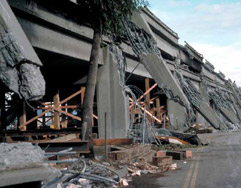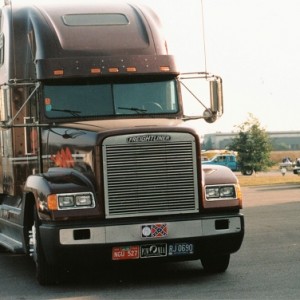On 10/19, President Obama signed The Military CDL act of 2012, which passed through both chambers of congress. With so many arguments about speed limits, infrastructure and safety going on in the country right now, it’s a happy abnormality.
According to Trucking Info, “The law will enable an active duty service man or woman to go through the training and skill acquisition necessary to obtain a CDL while they are performing their duties in service to the United States. The fact that they may be serving in a state other than their home state will no longer be an obstacle… Previously, states were only able to issue CDLs to persons who are legal residents in the state. Since many military personnel often receive their vehicle training in locations other than their homes of record, including their duty stations, the old law made it difficult for them to obtain a CDL before leaving military service. The law creates an exception allowing states to test and issue commercial driver’s licenses to service members who are domiciled in another state.”
This means that military personnel can train and study for their CDL while using their applicable work skills and that state bureaucracy won’t stop them from getting a license once they return home. As any of us who drive a truck can attest, ex-military folks often make the best drivers.
So, in a country that desperately needs truck drivers but continues to argue with itself over trucking regulations, how will these new ex-military drivers change things?
Speed Limits
In states like Texas and Idaho, there have been some heated arguments about what the speed limit should be and how it affects truckers. The American Trucking Association is often at odds with truckers themselves, and motorists don’t agree with either one.
Drivers fresh out of the military might be in a position to come at these problems with a unique perspective. Cars passing, changing speeds and changing lanes is nothing compared to encountering an IED while on patrol. Military drivers might be able think with clear heads and find solutions to speed related problems with relative ease. In addition, they understand how valuable resources are to any project. And, in this case, fuel is a valuable resource, so fuel efficiency becomes a paramount priority. They can see the long term goal and operate with fuel conservation in mind—they already know that consistency is the key to a successful delivery.
Road Quality
In a Yahoo News piece, Teamsters General president Jim Hoffa said, “With construction projects ramping up there is an increased need for safe, dependable truck drivers with CDLs… Through our work with the Teamsters Military Assistance Program and Helmets to Hardhats, we know that our active duty military and veterans are valued for their military training, making them sought-after candidates for freight and construction work.”
In theory, veterans are specifically qualified for both construction projects and navigating roads that are in desperate need of repair. It can be tough to navigate tons of freight over questionable roads, and it requires steel nerves and a clear head. Veterans are uniquely qualified to keep calm and guide a truck in difficult road conditions. It’s not easy for anyone, but the stress of military service and intense training make the prospect more palatable.
Members of the military are taught to always watch out for their fellow soldiers, so they’re in a position to take extra care on bad roads and in bad weather conditions. They’re conditioned to not only look after themselves, but to look out for the safety of everyone around them. When it comes to the construction projects themselves, companies will be hard pressed to find better, more dependable workers than veterans. As far as infrastructure goes, this is a win-win-win.
Fulfilling a Need
As most truckers know, there’s something of a driver shortage going on. We have to take more jobs and see our families even less because there’s a distinct lack of dependable drivers. The Military CDL Act might change that very quickly.
Even ATA President Bill Graves agrees. According to Trucking Info, Graves said, “As the economy continues to recover, it is becoming ever more challenging for trucking companies to find qualified drivers to move America’s most essential goods… Veterans with experience driving trucks in the military are highly sought after… Making it easier for veterans to move into these jobs is a good thing for the military, for the veterans themselves and for our industry.”
Safe, dependable drivers on the road means there’s less chance of accidents. Fewer accidents create less damage to the road. In addition, drivers who can properly navigate roads that badly need repair present a reduced risk of accidents along those treacherous stretches of interstate. Even better, if veterans are able to participate in the actual infrastructure projects, they might just go more smoothly and move along faster. For already-stressed drivers, damaged roads, trucking companies and the safety of everyone on the road, the Military CDL Act is a welcome act of government.
This article was written by Hank Barton. Hank is a second generation trucker-philosopher with a penchant for the written word. He enjoys blogging about long haul trucking, safe driving practices and life on the open road. He writes for E-Gears, an online CDL Test authority that specializes in a variety of study guides.
Tags: Infrastructure, military, military CDL act, speed limit, Trucking, veterans







 RSS Feed
RSS Feed